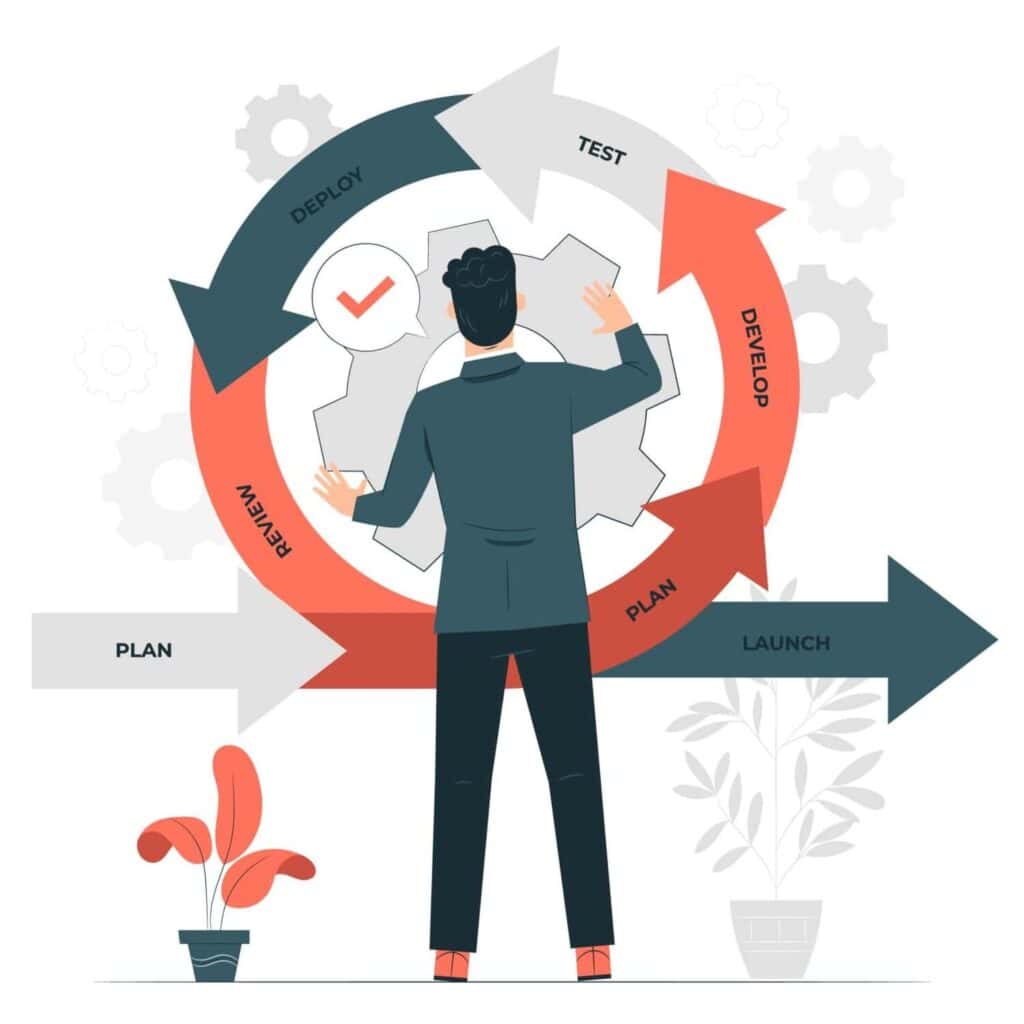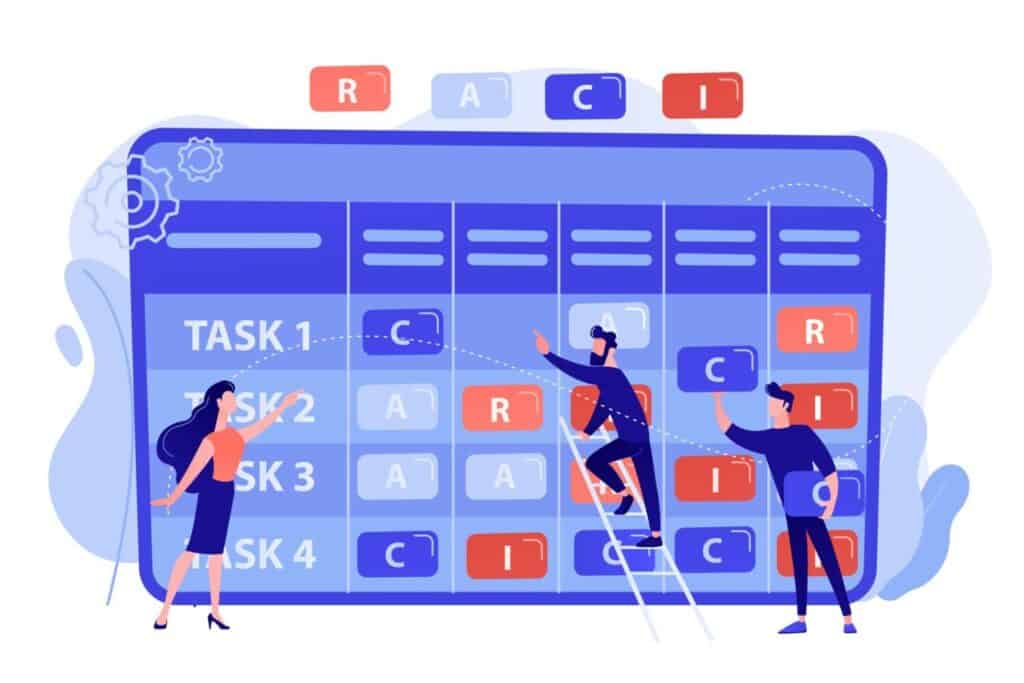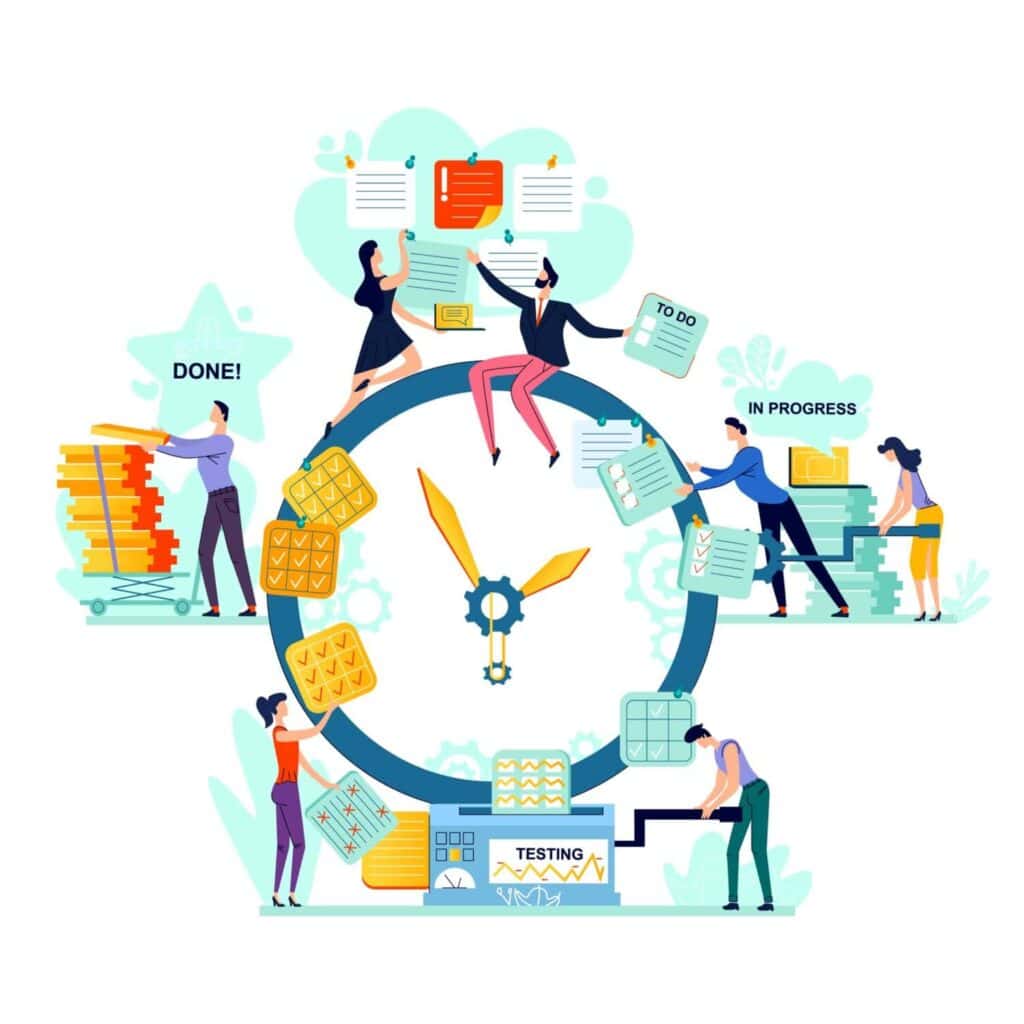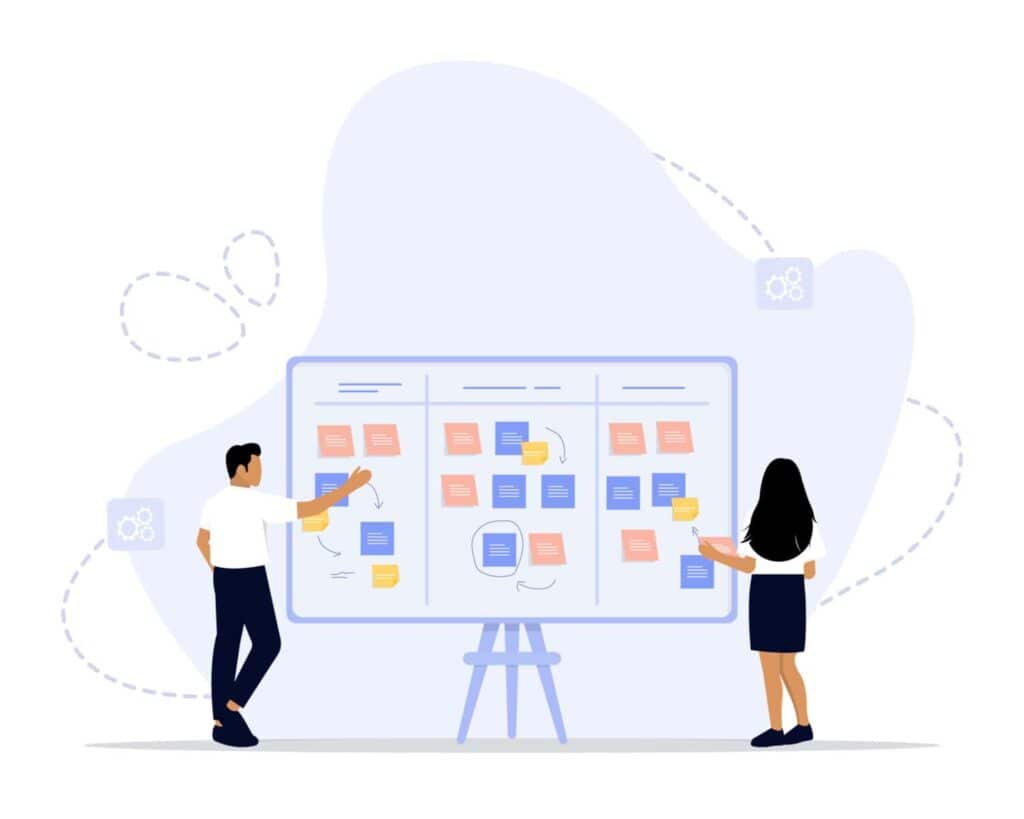Agile online marketing across all disciplines for faster Time To Market, best results, efficient prioritisation, maximum flexibility, transparency, and controllability even for scaling projects. You benefit from:
Achieve the big goal with small, structured steps. Breaking down the marathon into project management and implementation levels means more customers, leads & visibility.

Sprint by sprint, master the most effective online marketing disciplines (value-based prioritisation) according to predefined requirements. Continuous exchange strengthens problem-solving competence, creates synergies and bundles the expertise and experience of the team in a holistic result within a comparatively short period of focused work.

Always able to concentrate on what is most effective and react to changing requirements. Distribute tasks in short intervals and complete them independently – optimizing time to market. React immediately to the cost-benefit, risk and dependency ratios and stay one step ahead of the competition.

Become more efficient and effective with every sprint and project. Through frequent, fact-based and process-based reviews, those involved learn what works well and what can be improved. At the same time, more and more user stories (requirements to achieve a goal) are implemented, and online marketing success is achieved. Constantly learn and grow in order to use mistakes profitably in the future.

In large projects, use synergies across tasks and entire teams. Superior coordination, even with several Scrum teams, ensures simultaneous, independent implementation and at the same time optimal coordination in order to achieve the sprint goal quickly and cost-effectively. Stay in the flow with agile working, even on a complex topic like online marketing, thanks to constant cooperation.
Best practice project management and agile online marketing at first-hand. In the form of
You will benefit either from the agile processes used internally at digitalagenten or from the specialists who come to your company to support your marketing department with agile project management or agile working methods.
In your free and non-binding initial consultation, you will find out the possibilities and advantages agile online marketing can offer you. In addition, we will outline together what the individual stages and workflows must look like in order to achieve the goal with maximum efficiency to give you a decisive competitive advantage.
A clearly structured process with fixed roles ensures that the most effective levers are used synergistically by the appropriate specialists. You will receive the support you need for your project and only pay for what really gets you ahead.
It might be holistic support from a Scrum Master and a connected Scrum Team at our agency, digitalagenten can offer the right solutions. It could also be advice and support from an agile interim marketing manager or product owner who leads and coordinates the internal team and, if desired, uses the Scrum framework.
Within a sprint (period between one and six weeks), the Product Owner, Scrum Master and Scrum Team work together intensively. Making use of the methods and processes of agile project management and creating the best possible results (deliverables) in a flexible framework. The framework is developed according to requirements, your wishes and the fast-moving market environment:

Gather requirements, prioritise them, transfer them into to-dos for the team & set the sprint goal.
What needs to be accomplished? How much can be achieved? How can it be done?

Flexible and efficient with daily coordination of the team regarding the individual tasks to achieve the goal.
Doing the work and synchronising. What did we do yesterday and today? Identify obstacles and find solutions.

Acceptance of the preliminary sprint result by the Product Owner.
The team presents the functional product increment of the sprint to you to take up further requirements & adjustments.

Analysis of processes to deduce what will be optimized in the next sprint.
Assessment of the sprint process with regard to the sprint goal. At least one improvement is implemented in the next sprint.

Fixed requirements, clearly defined goals, binding role allocation, replicable processes & yet flexible, fast, transparent, goal as well as performance-oriented and cost-efficient in implementation:
Respond flexibly and quickly to changing market requirements with experienced players who master agile ways of working.
You will receive honest and transparent advice: If classic or hybrid project management is more suitable for your project, they will be just as happy to create the right solution.


In order to make the best use of the short timeframe and to focus on the tasks that are important and bring real results, the sprint must be planned.
At the beginning, the product owner transfers the initial overall requirements of the project into the Product Backlog. This list shows all the requirements (EPICS, higher-level user stories, user stories) that you and your target group have for the project.
The Product Owner’s list (Product Backlog) is reviewed by the team, and they decide which requirements should be implemented and how in the next sprint. The sprint backlog is a list of tasks to be executed by the Scrum Team in the upcoming sprint.
During the sprint, progress is displayed on a Scrumboard to indicate the status of User Stories in the backlog and associated risks.
New tasks are not added after planning is completed, but are added to the product backlog and completed in a subsequent sprint.
Once the planning process is complete, the development team and product owner jointly set a fixed Sprint Goal. For example (Epic):
Increase visibility by 25 per cent and increase conversion to 5 per cent by creating 3 SEO-optimized landing pages with added value for the user.


The sprint backlog can again be divided into different EPICs and user stories, which define a requirement for the result. As a “role”, I want “functionality” to be there to achieve the “goal”. For example:
As a local craft business, I want keywords to be identified where optimization is worthwhile to generate more visibility. Based on this, three landing pages can be planned and created.
The “Effort Estimated Task List” is derived from this User Story. This shows all the tasks associated with the User Stories contained in a sprint. For example:
Keyword research, target group analysis, search intent, funnel calculation…
Effort Estimation provides a common view of the user stories, and the information gathered is used to determine the sprint pace. For example:
How much time does it take to identify attractive keywords?
In the sprint planning meeting, team members select the tasks they want to work on in the sprint – based on experience and expertise – from the list of Estimated Efforts.
You are represented by our Product Owner, who ensures both your explicit and implicit needs and requirements are included in the prioritised Product Backlog in the form of the User Stories and flow into the Sprint Backlogs.


For the best possible internal and external communication, the Daily Standup Meeting takes place every day from the beginning of the Sprint. This takes 15 minutes a day and promotes exchange, productivity, and efficiency because:
The standup meeting lasts no longer than 15 minutes and is designed for each team member to answer three questions:
For example:
Is the copywriting for a landing page complete so that team member 1 can do quality assurance while the content creator can start on the next landing page based on team member 2’s research? How should the copywriter deal with the challenge of ensuring that there is as little duplication with landing page 1 as possible on the second landing page – what does the person responsible for keyword analysis say?
This information is used to update the Sprint Burndown Chart and Scrumboard at the end of each day. This helps the people involved to always keep an eye on the achievement of the project goal and to maintain focus.


The goal is to be concise and focus on the most important things. In-depth discussions between the Scrum Master and the Team or within the Scrum Team should be held after the meeting.
To ensure that the Daily Scrum takes place at the same time and place every day, the Scrum Master organises the meetings. An exchange of content is only planned between the team members. The Scrum Master ensures that the 15-minute limit is adhered to and intervenes when necessary.
Collect results transparently and significantly shorten the time to market with an acceptance date in order to move forward faster while maintaining high quality.
At the end of the sprint, the results are presented to you/the product owner and their stakeholders. Individual criteria (acceptance criteria) are used to check whether the requirements of the processed User Stories have been completely covered:
Were the keywords that can greatly increase your visibility found and, based on this, was a plan developed that meets the needs of your target group and the SEO requirements?
The participants reflect on the cycle and have the opportunity to give direct feedback on what can be included in the product backlog for one of the subsequent sprints.
The meeting is led by the Scrum Master and usually lasts a few hours – depending on the scope of the sprint.


Analysis of the sprint ensures that the next sprint will be even better, more effective and more efficient.
All participants take part in this meeting, and it is chaired or moderated by the Scrum Master.
The central task is to find out where there is still potential for optimization through an open exchange and discussion:
Based on all the findings, the team agrees on as many aspects as possible and includes them in the planning and implementation of the next sprint.
Insights from the sprint are also used meaningfully at the highest level – the product backlog.
The Product Owner determines the value of the remaining User Stories and prioritises them accordingly. In addition to the value, possible risks and dependencies of User Stories also play an important role in the prioritisation.
In a prioritised Product Backlog review, you ensure that the User Stories and acceptance criteria:
In this way, the backlog is updated after each sprint – by new User Stories, new change requests, new and identified risks, updated User Stories or changed prioritisation.


A team of specially trained Product Owners, Scrum Masters and technically excellent team members is at your disposal. They are trained in the process of agile online marketing. Scalable structures meet scalable solutions that can be rolled out customised for your business objective - even if you have many branches.

The communication structure increases speed, enhances creativity and maximises exchange between interrelated trades. Agile working makes your project transparent, controllable and accountable: you are involved at all times, are informed about progress, receive detailed reviews and can influence the project yourself or via the Product Owner.

Our agile Project Managers and Online Marketing Specialists are not only impressive at the process level. By linking project management and best-practice online marketing expertise, we create efficiency-enhancing, interdisciplinary synergies so that solutions are created that beat the benchmark and set new standards.

Whether Consulting, Outtasking or Outsourcing: we create solutions and collaborations as you need them. From consulting on agile work to holistic implementation (done-for-you solutions of all sizes), our Product Owners, Scrum Masters and Online Marketing Specialists support you at all project levels.
Agile working means fast, flexible, efficient, cooperative, synergetic and goal-oriented work. Benefit from modern project management for your online marketing project and gain visibility and more customers online.
Arrange your initial consultation risk-free – since it is free and non-binding – and receive an insight into how we can use agile project management via the Scrum Framework to help your business succeed.
– digitalagenten – Your Agile SEO agency, Berlin
Book a free consulting with us.
Phone
+49 30 346 496 300